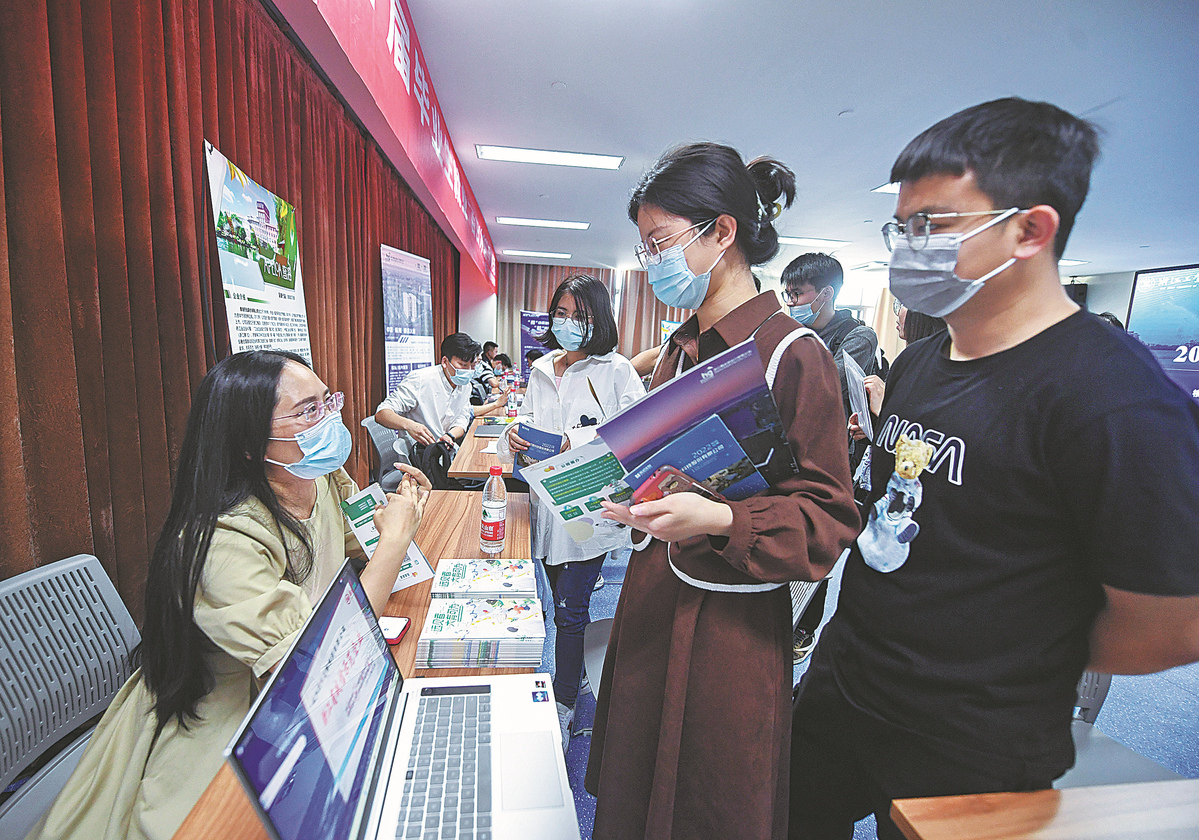Targeted moves seen as key to stable economy
 0 Comment(s)
0 Comment(s) Print
Print E-mail China Daily, May 20, 2022
E-mail China Daily, May 20, 2022

The role of fiscal policy needs to be brought into full play with a focus on securing market players, sustaining employment and driving up consumption, to counter the downward pressure of the economy, experts said.
On Tuesday, Xu Hongcai, vice-minister of finance, said in a news briefing that the ministry is swiftly exploring new policy tools and is ready to enhance well-targeted regulations in an effort to realize the economic growth target for this year, and to keep major economic indicators within a proper range.
Over the past days and weeks, experts have been suggesting that fiscal policy shall play a greater role in countering the mounting downward pressure. Lu Ting, chief China economist at Nomura, urged when attending the Tsinghua PBCSF Chief Economists Forum on Saturday that with the space of the monetary policy being limited for this year, the intensity of fiscal spending shall be stepped up and become better targeted.
"Intensified fiscal spending will effectively anchor market expectations, ensure the normal functioning of primary-level governments and better protect market players," he urged, adding that fiscal funding is usually a more direct way to boost the economy.
Robin Xing, chief China economist at Morgan Stanley, warned in a recent note regarding China's economic outlook that COVID-19 disruptions have somehow "eroded the effectiveness of policy easing, and muted demand more than supply", suggesting overall policy intensity will increase.
Employment and consumption need to be the two major focuses of the new fiscal policy tools going forward, said Zhang Bin, deputy director and professor of the Institute of World Economics and Politics at the Chinese Academy of Social Sciences. He said the entire COVID-19 situation since early 2020 has not only hampered growth but has also brought structural changes to the economy, with consumption falling behind expectations and smaller businesses facing acute challenges for survival.
He pointed out that small and micro-sized businesses have been the group most severely hit by the pandemic. Yet they have also long been the country's major job creators covering wide sectors.
"Job security will remain a high priority. The essence of sustaining employment is to keep the economy stable. Therefore, more fiscal policies should be rolled out to subsidize small business groups," he said.
China vows to create over 11 million new urban jobs this year, according to this year's Government Work Report. A State Council executive meeting chaired by Premier Li Keqiang on May 11 urged the adoption of fiscal and monetary policies that prioritize job creation to keep overall economic performance stable. It was stressed at the meeting that fiscal and monetary policies should be employment-oriented. Specifically, tax refunds and breaks, deferred payment of social insurance premiums, reductions in financing costs and other measures should all focus on keeping the operation of market entities stable, keeping payrolls stable and keeping employment stable, to safeguard basic livelihoods, stabilize growth and drive consumption.
Zhang suggested that besides further tax cuts and refunds, one sensible option is to provide forceful subsidies to market players and households by issuing special treasury bonds of a sizable scale.
"A special policy boost is needed under current special circumstances," he said. "The pandemic resurgence since March has been putting many small businesses, particularly those in the services sector, on a lifeline. Forceful policy is needed first to keep them up and running."
Figures from the Ministry of Finance also on Tuesday suggested that the country's fiscal revenue for the first four months contracted by 4.8 percent year-on-year, mainly because of the value-added tax refund program that started in April. Zhang said both the existing tax refund program and the possibility of a new special treasury bond are to "foster a more enabling environment for market entities to grow".
Economists believe that another sensible option on the fiscal front is to front-load the quota of special-purpose local government bonds for 2023 to this year as an effort to generate more investment activities. Robin Xing from Morgan Stanley said that "more pandemic fiscal relief will be introduced and the government may move forward some of the 2023 construction bond quota to this year."
Zhang argued that advancing special-purpose local government bonds, a move that China has done every year since 2019, may not generate as much policy effect as expected unless the usage of these bonds can be widened and innovated.
He said conventionally, investment projects for special-purpose local government bonds must generate a certain level of profit in return, yet the number of investment projects under such requirements may be limited in light of this year's investment circumstances.






Go to Forum >>0 Comment(s)